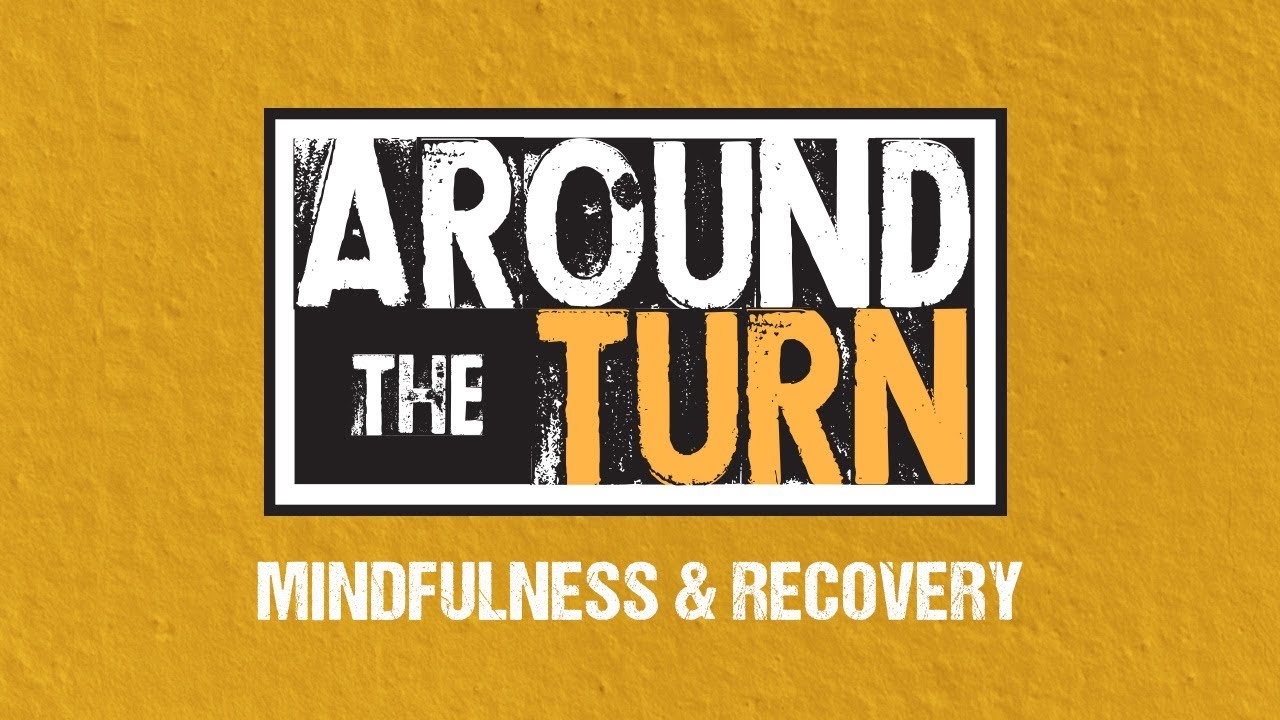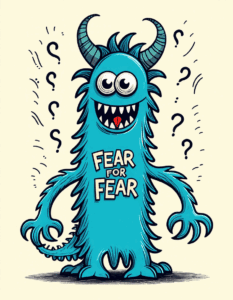Understanding Mindfulness in Recovery
Many parents, like those who support www.mothersagainstaddiction.org, grapple with the effects of addiction on their children. Mindfulness isn’t just some trendy word thrown around in wellness circles; it’s a lifeline for those in recovery. Mindfulness in recovery means staying present and genuinely aware of one’s thoughts, feelings, and surroundings without judgment. It helps manage those pesky cravings and triggers while promoting emotional healing and resilience. This practice could be the transformative boost that many of us desperately need.
The Science Behind Mindfulness in Recovery
Intriguingly, mindfulness does more than just soothe the soul. Research shows it can physically change the brain. A 2021 study published in JAMA Psychiatry found that mindfulness meditation can alter areas of the brain linked to addiction—think the prefrontal cortex, which handles self-control, and the amygdala, which navigates emotions. These findings highlight why incorporating mindfulness into recovery programs can be pivotal. To anyone asking, What are blues Drugs? the science here makes a strong case for mindfulness as an essential tool in overcoming addiction.
| Component | Description | Benefits | Practical Tips |
| Present-Moment Awareness | Focusing on the here and now, away from past guilt or future anxieties. | Provides clarity, reduces anxiety, improves ability to handle stress. | Practice deep breathing exercises, mindful walking, or guided meditation. |
| Acceptance and Non-Judgment | Embracing thoughts and feelings without labeling them as “good” or “bad”. | Helps in reducing self-criticism, increases self-compassion, fosters emotional stability. | Observe your thoughts and feelings without reacting to them. Keep a non-judgmental journal. |
| Intentional Action | Engaging in actions deliberately with a clear understanding of purpose and consequence. | Encourages conscious decision-making, supports long-term sobriety, and enhances emotional resilience. | Set clear daily intentions, choose activities that align with your recovery goals. |
| Creativity | Utilizing creative expression such as art, music, or writing to process emotions and experiences. | Enhances emotional release, promotes relaxation, and increases self-esteem. | Engage in art therapy, music therapy, or journaling. |
| Culture | Immersing oneself in cultural activities to foster community and personal growth. | Expands perspective, provides a sense of belonging, and improves emotional well-being. | Participate in cultural events, attend support groups, or explore different cultural practices. |
| Contemplation | Spending time in thoughtful reflection or meditation. | Promotes self-awareness, reduces stress, and enhances overall well-being. | Practice meditation, take quiet walks in nature, or engage in reflective reading. |
| Community | Building connections with others who understand and support the recovery journey. | Increases feelings of support, reduces isolation, and creates a network of encouragement. | Join recovery groups, participate in community activities, or volunteer. |
| Feature | Benefit | ||
| Stress Management | Mindfulness helps in managing and reducing stress levels, which is crucial during recovery. | ||
| Emotional Regulation | Enhances ability to handle emotions, reducing likelihood of relapse. | ||
| Improved Mental Health | Decreases symptoms of anxiety and depression commonly experienced during recovery. | ||
| Enhanced Self-Esteem | Facilitates a more positive self-view and boosts confidence. | ||
| Increased Relaxation | Many individuals report an ability to relax and achieve a state of calm through mindfulness practices. | ||
| Greater Enthusiasm for Life | Encourages a more positive outlook on life, improving overall well-being. |
Practical Ways to Implement Mindfulness in Daily Recovery
Real-Life Examples of Mindfulness Transforming Recovery
The Journey of Jessica Simpson
Anyone familiar with the resilience of Kacy catanzaro knows the power of perseverance. Jessica Simpson, the singer, and fashion mogul, has also shared her addiction struggles and how mindfulness was pivotal in her recovery. Meditation and mindful journaling have helped her maintain sobriety and rebuild her life from the ground up.
Outreach from the David Lynch Foundation
The David Lynch Foundation is bringing Transcendental Meditation (TM) to those in recovery. Their beneficiaries’ success stories highlight remarkable improvements in managing stress and anxiety and achieving long-term sobriety through regular TM practice. Mindfulness is a cornerstone of their journey.
Integrating Mindfulness into Professional Recovery Programs
Recognizing mindfulness’s value, several rehab centers have included it in their recovery programs. The Hazelton Betty Ford Foundation, for instance, has been an early adopter of mindfulness-based relapse prevention (MBRP). They report higher success rates with these programs, proving how mindful practices can sustain recovery. If you’re interested in alternative Therapies For addiction, you might find some helpful insights here.
Innovative Approaches to Encourage Mindfulness
Apps and Wearable Technology
Step into the digital age of recovery with tools that can enhance mindful practices. Apps like Insight Timer offer thousands of free guided meditations. Wearables, like the Apple Watch, feature mindfulness reminders, keeping you engaged in the journey toward recovery.
Community and Support
Building a community around mindfulness offers shared experiences and mutual support. Organizations like Mindful Recovery Enthusiasts (MRE) host weekly online and in-person sessions. These meetings provide a safe space for discussing challenges and triumphs, reinforcing the practice of mindfulness in recovery.
Transforming the Journey: The Long-Term Impact of Mindfulness in Recovery
Remember, mindfulness isn’t a quick fix. It’s a practice you carry with you for life, bringing deep and lasting benefits. Parents and individuals who incorporate mindfulness into their recovery process often report improved quality of life, better emotional regulation, and enhanced mental health. Such sustained approaches empower you to combat addiction while cultivating a meaningful, fulfilling existence. Through mindfulness, you’re not just coping; you’re thriving.
Transforming recovery through mindfulness is an ongoing journey of self-discovery and resilience. By weaving mindful practices into daily life, leveraging technology, and building a supportive community, individuals can significantly alter their recovery pathway. The real power of mindfulness in recovery lies in fostering a deeper connection with oneself, offering the peace and strength necessary to overcome addiction. Embrace this journey with open arms and watch as it transforms your life, one mindful breath at a time.
For more inspiration, dive into the compelling stories of parents and caregivers on www.mothersagainstaddiction.org. From exploring special needs Quotes For Parents to learning about innovative therapies and community support, you’ll find a wealth of resources designed for those facing the challenges of addiction.
Mindfulness in Recovery: Transform Your Journey
Creative Outlets
Mindfulness in recovery is not just about sitting in silence; it can encompass various forms of healing, like art therapy. Engaging in art therapy for addiction can help individuals express emotions they might struggle to verbalize. From painting to sculpting, it provides a tremendous outlet for feelings, fostering mindfulness by focusing on the creative process. What’s more, did you know that people practicing mindfulness find significant improvement in their mental health and emotional regulation?
Flow Through Movement
Moving the body can be a powerful way to connect mind and spirit. That’s where yoga for addiction recovery comes in. This ancient practice helps in grounding oneself, aligning both physical and mental well-being. Surprisingly, yoga has been found to reduce stress and anxiety by promoting mindfulness through movement. You’re more likely to stay in the present moment, making it hard for negative thoughts to break through. Cool, right?
Mindfulness in Everyday Moments
When you’re mindful, everyday activities, even seemingly unrelated ones, can become part of your recovery journey. Interestingly, paying attention to your mortgage rate today might seem mundane, but being mindful of your finances can reduce stress and promote a sense of control and stability. And talking about unexpected, how odd is it that watching something as playful as Carnival Phantasm can momentarily lift spirits and divert the mind?
Fascinating, isn’t it? Incorporating mindfulness in recovery can be a turning point, and it’s not just about meditation; it’s about living in the moment, no matter how small the activity. Mix it up, stay engaged, and watch how integrating these habits can transform your journey.

What does mindfulness mean in recovery?
Mindfulness in recovery is all about staying grounded in the present moment. It helps individuals steer through overwhelming emotions by offering clarity and calm. By focusing on the here and now, it allows people to manage their feelings and memories better.
What are the three components of mindfulness in recovery?
The three components of mindfulness in recovery are present-moment awareness, acceptance and non-judgment, and intentional action. These elements work together to help people stay grounded, embrace their experiences without harsh judgment, and take deliberate steps towards their well-being.
Why is mindfulness important in healing?
Mindfulness is crucial for healing because it helps manage stress and cope with difficult emotions. By staying present and practicing acceptance, people can reduce anxiety and depression, leading to a more balanced and peaceful state of mind.
What are the 4 C’s of mindfulness?
The 4 C’s of mindfulness stand for Creativity, Culture, Contemplation, and Community. These elements foster a holistic approach to mindfulness, encouraging personal growth and connection with others.
What are the 5 R’s of mindfulness?
The 5 R’s of mindfulness haven’t been established in mainstream literature, so there’s no information available on this concept.
What are the three C’s of mindfulness?
Likewise, the three C’s of mindfulness don’t have a recognized definition in mindfulness practices, so additional information isn’t readily available.
What are the 3 R’s of recovery?
The 3 R’s of recovery commonly refer to Rehabilitation, Reintegration, and Resilience, emphasizing the process of recovering and rebuilding life after addiction.
What are the 3 P’s of recovery?
The 3 P’s of recovery include Patience, Persistence, and Perseverance. These qualities are essential for anyone navigating the challenging journey of sobriety.
What are the 3 A’s of mindfulness?
The 3 A’s of mindfulness are Awareness, Acceptance, and Action. These principles help individuals recognize their current state, accept it without judgment, and take intentional steps to improve their situation.
How to heal with mindfulness?
Healing with mindfulness involves practicing present-moment awareness, fostering acceptance of emotions and thoughts, and engaging in activities that promote relaxation and self-awareness. It’s about cultivating a peaceful and accepting mindset.
Can mindfulness heal trauma?
Mindfulness can aid in healing trauma by helping individuals stay grounded and manage traumatic memories. While not a cure-all, it can offer significant relief and support emotional healing.
Is mindfulness a self healing activity?
Yes, mindfulness is a form of self-healing. By focusing on the present, it helps individuals manage stress, improve their mental health, and foster a greater sense of well-being.
What is the ABCD of mindfulness?
The ABCD of mindfulness doesn’t have a widely recognized meaning in mindfulness literature, so accurate information isn’t available on this acronym.
What are the 3 Ps of mindfulness?
The 3 P’s of mindfulness are not well-defined within conventional mindfulness teachings, so specific details aren’t available.
What did Buddha say about mindfulness?
Buddha emphasized mindfulness as a path to enlightenment and inner peace. He taught that staying aware and present in the moment helps individuals achieve a deeper understanding of themselves and the nature of reality.
What is meant by mindfulness?
Mindfulness means being fully engaged in the present moment, bringing an open and accepting attitude to whatever you are experiencing. It involves attentiveness and awareness without getting overwhelmed or judgmental.
What are the 3 A’s of mindfulness?
As previously mentioned, the 3 A’s of mindfulness include Awareness, Acceptance, and Action. These help individuals connect with the present moment and respond thoughtfully to their experiences.
How does mindfulness increase resilience in recovery?
Mindfulness increases resilience in recovery by fostering emotional regulation and stress management. It helps individuals stay grounded and face challenges with a calm and clear mind, promoting long-term sobriety.
How does mindfulness help recovery and relapse prevention?
Mindfulness supports recovery and relapse prevention by helping individuals recognize and manage triggers. By staying present and non-judgmental, they can handle cravings and stress more effectively, reducing the likelihood of relapse.




























